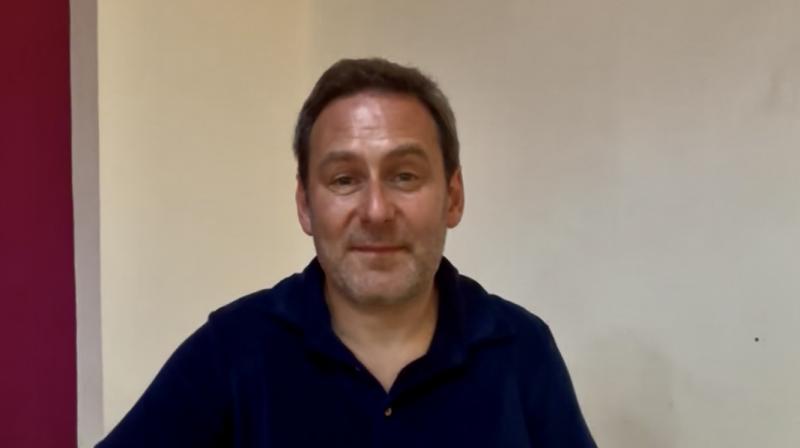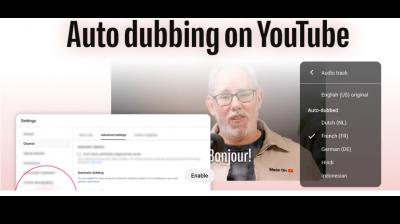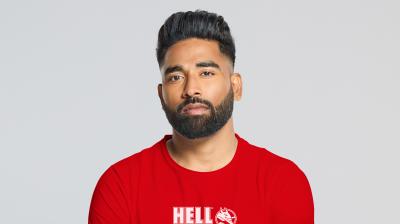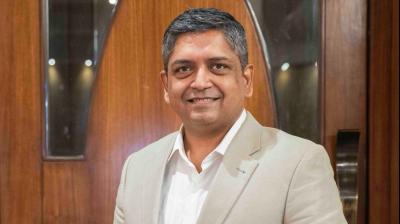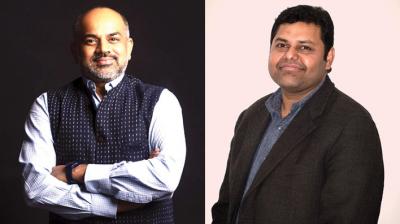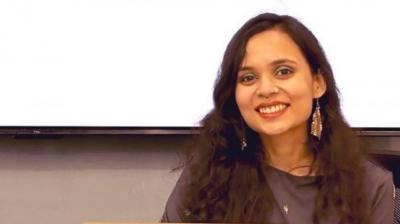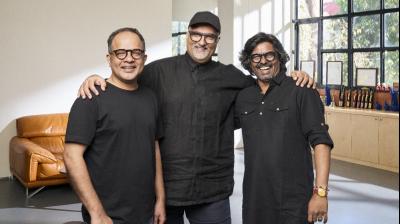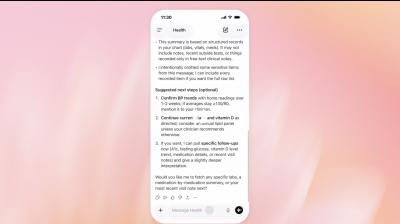Manifest caught up with Youri Guerassimov, CCO and co-CEO, Marcel, Paris who’s visiting India as the jury chair for the Abby Awards at Goafest, for a conversation that touched on the balance between creative ambition and business priorities, the importance of bold ideas, the challenges of maintaining authenticity in an era of rapid technological change, and the universal issue of talent attrition. He also shared his perspective on the evolving Indian advertising landscape before heading to Goa.
Edited excerpts:
How do you define a ‘great idea’ in advertising today, and is that definition changing in the tech-driven age?
Yes, it is changing. A great idea is the one that helps our clients to achieve something - an idea that’s not good for the business is not a good idea.
This is the first way I understand the idea - how does it help the brand strategy? How does it help the business of a client? And, this is something that’s changing about the industry, and rightfully so.
For instance, around 20 years ago, ideas were celebrated purely for the sake of creativity, and this is beginning to disappear. In my opinion, it shouldn't exist at all because we are here to work for brands. Every brand has something interesting and valuable to say. And it’s our job to uncover that and communicate it in a compelling way that makes the brand desirable.
In today’s world, marked by economic inflation, shifting global dynamics, and new challenges in markets such as the US, business is becoming more complex. Our clients are under pressure, and as agencies and advertisers, it is our responsibility to stand by their side, to help them navigate these changes and find new ways to succeed. This is probably also an opportunity for the advertising industry to be on the side of the clients to win back their confidence and the trust they have reposed in our agency.
What are your impressions of India’s advertising ecosystem and the evolution of Indian creativity in recent times? Where does it stand globally?
As we speak, the judging process (for the Abbys) has finished, and I have a complete view of the work submitted for my category (Integrated). Besides that, I have been familiar with Indian advertising for several years now, and I continue to be impressed by its consistently high quality. What I like about Indian advertising is that it's always full of insights, and at the same time, one sees a lot of interesting ideas integrated with technology. India as a country has a lot of stories to tell, as Indians are incredibly diverse in different ways, which is reflected in the work as well, and gives brands and creatives a wealth of stories to tell. This diversity translates into advertising that is emotionally resonant and contextually relevant.
At the same time, India is known for its engineering talent and technological skillset. I find it fascinating how this technical strength is reflected in the advertising. This blend of cultural diversity, insight, and technological skills helps clients do some great advertising that contributes to making brands more meaningful and desirable.
In a recent interview, you mentioned that ‘the return of bold ideas’ is the trend to watch out for. Did any entries surprise or impress you in terms of their boldness in creativity or storytelling?
While I cannot disclose specifics about the entries, I did come across several ideas that stood out for their bold and interesting ideas. I believe Indian advertising is very creative and qualitative. India is amongst the best advertising countries and also one of the most creative countries in the world.
You mentioned that technology plays a significant role in today’s advertising ecosystem. Do you believe this impacts the authenticity or emotion-led storytelling that advertising has traditionally relied on?
I believe we’re seeing fewer campaigns that are solely around ‘social good’, and more that are strategically built around business goals, and that’s a positive shift. However, just because a campaign is designed to serve a business purpose doesn’t mean it lacks emotion. In fact, business-driven ideas can be highly emotional, and helpful. The key lies in striking the right balance, and I prefer it this way.
Yes, but does the authenticity of brand campaigns suffer in the process?
Yes, in a way, authenticity will always struggle. That’s also our responsibility as an agency, and as an advertiser, to find the right balance with the client, to bring more authenticity we can - not for the sake of authenticity itself, but because it’s a way to connect more deeply with consumers, deliver our message better, and make our brands more loved. So, we do need authenticity, and we need to convince our clients about its impact.
Do you think the traditional agency model still works, or is there a need for reinvention?
I believe the traditional agency model is still relevant, but yes, there is a need for reinvention. As to how, I don't have the answer, but this is something agencies across the world, regardless of geography, are grappling with right now: What is the next step? How do we redefine the way we work to better meet today’s demands?
We all need to explore new ways of working, thinking, and organising ourselves. Perhaps AI will play a role in facilitating that evolution. AI offers opportunities for transformation, but the question is not whether it will change the way we work, but how deep and far-reaching that change will be.
What do you see as the main challenge to that reinvention?
The biggest challenge, particularly for a creativity-driven agency like Marcel, is talent. We put a lot of energy and, of course, money into bringing the best talents to our agency. But while we're doing that, we need to have enough business to pay all these talents. Because it’s one thing to bring people, but then you need to make them stay. And because we are all about long-term partnerships, we love to retain our creatives for three to seven years at least, and to make a great relationship. I would say that’s part of our secret to doing a great job consistently - that we spend time to know each other for a long time, and we're trying to create a tribe. So to make it work, yes, we need money. And that’s where the challenge lies.
Clients everywhere in the world - not only at Marcel - are very demanding. They need more and more work but have less and less money. So that’s tricky, because if you need to deliver more work with less money, with having people who cost you more and more, that's where the struggle starts. More so in France, because we are a smaller country with high production costs, and the cost of work is very expensive, so in a way, we're impacted even more. However, I hear similar concerns echoed across the Indian and global industries - it’s the same story everywhere.
With AI, tech and platforms changing so fast, what excites you most about the future of advertising and what worries you?
As someone who is naturally curious and deeply passionate about advertising, I find that everything excites me - every new thing, or even old things, because advertising is constantly evolving: new tools, new methods of thinking, and new ways of working. I’m not afraid of the future; I'm excited about it. I believe that as creatives, it's our job to adapt and lead through change. If we, as creative professionals, cannot find solutions and chart the path forward, then it's a real problem. I'm confident that we'll find just the right balance and the right way to work, to make it great, and continue doing meaningful, effective work for our clients. At the same time, we must ensure that advertising remains engaging and entertaining.
For me, it's also important that brands make some bold and brave choices, because nowadays every brand is under pressure and struggling in some way. Now the competition is everywhere, and we are so over-exposed to advertising. There's so much advertising everywhere that brands need to be braver to stand out. Not just for the sake of being bold, but because courageous ideas connect more authentically with consumers. It's a way to make people love your brand, so your brand continues to grow, or at least survive. I believe all our clients must challenge themselves to be more bold, courageous, and brave, because they need it. Their brand needs it.
Do you think the cancel culture prevalent today is, in a way, responsible for brands choosing to tread the cautious line, rather than risk causing outrage by standing out too much?
That’s a very difficult question, but I wouldn’t say cancel culture alone is the cause. I think it's a galaxy of different reasons that made our clients afraid. At the heart of it is fear - fear of making the wrong decision, fear of taking risks, and fear of the repercussions that might follow.
Making the right choice in advertising has never been easy. And when a brand does make a bold, well-informed choice, the rewards can be noteworthy. But a lot of clients are just afraid to make some choices or decisions. So now it's all way too much organised in companies, and sometimes, in trying to avoid making mistakes, they lose out on the boldest part of their job. They have to win the battle that they have in increasingly competitive markets. And for that, they need compelling narratives and some brave ideas. Creativity must bring brands closer to consumers, and bold thinking is often the most effective way to achieve that.
Do you face this challenge frequently in your work, of clients being hesitant to pursue bold ideas?
I consider myself fortunate, because at Marcel we have some very great clients who have come to us specifically as they value what we stand for: creativity, originality, and bold thinking. These clients are generally open-minded and understand the value of bold ideas. But even with such clients, it’s never an easy process. Bold ideas, by their nature, are risky. They’re sensitive, sometimes controversial, and always difficult to buy. But usually we succeed together with our clients, because in the end, they are happy with the outcome.

.jpg)
